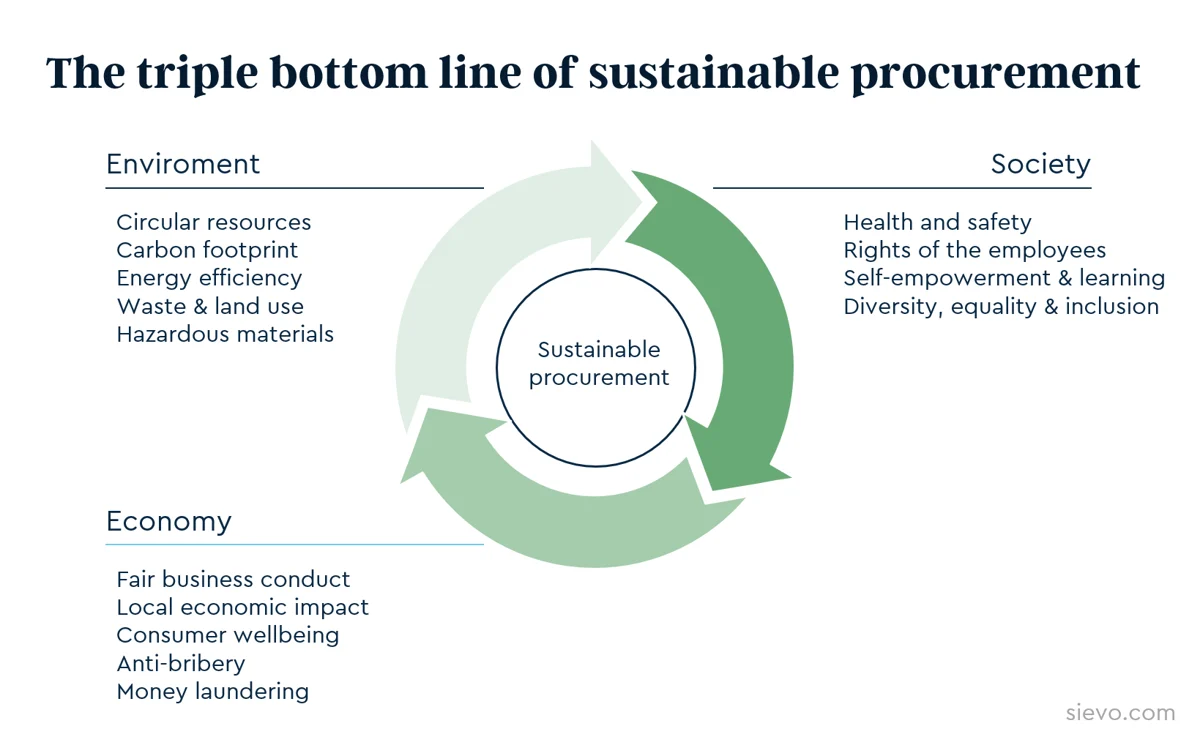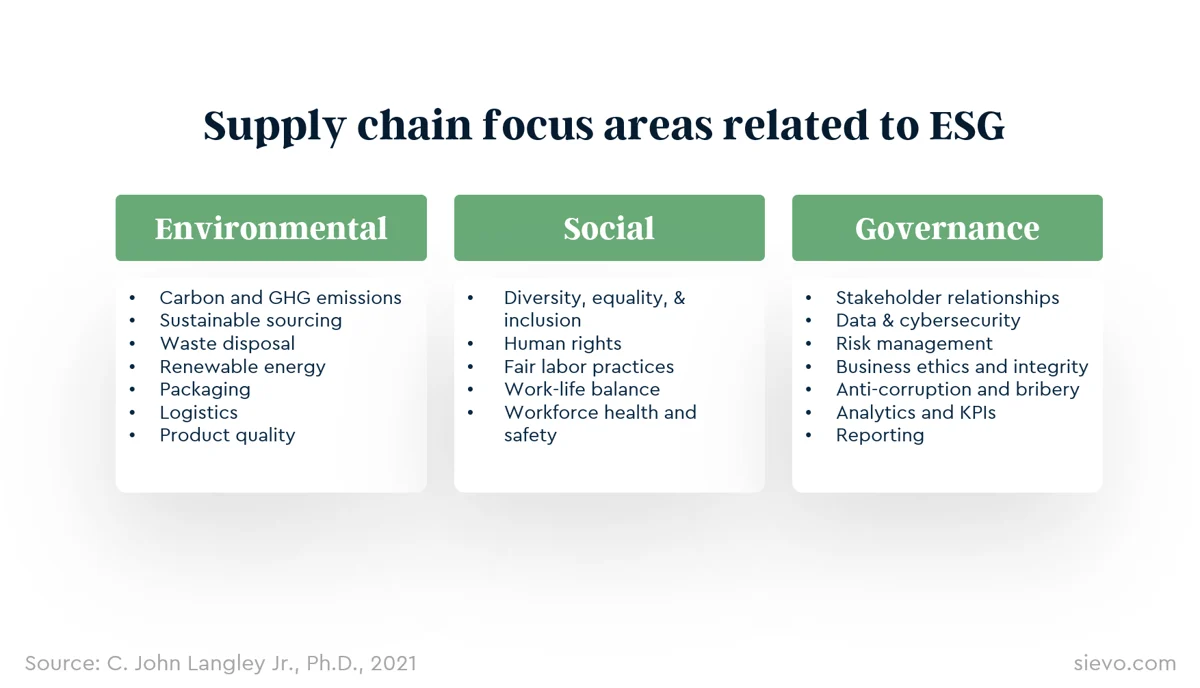Sustainability in product sourcing has evolved from a trend to a primary business priority for many companies. Businesses are changing their objectives as a result of growing awareness of the social and environmental effects of their sourcing decisions. As supply chain partners, we are aware of the increasing need for environmentally friendly solutions and are dedicated to assisting companies in achieving these objectives while preserving operational effectiveness.

Source: Sievo website
What Sourcing Sustainability Means
Sustainable sourcing is essentially choosing vendors and goods that minimize environmental impact and guarantee ethical labor standards. This idea goes beyond conventional environmental issues to include social responsibility and moral leadership. Corporations are being held responsible for the items they source, both by consumers and by authorities. This has forced businesses to examine every part of their supply chain more closely.
This implies a substantial change in the way sourcing choices are made for a lot of organizations. The emphasis is on switching to renewable resources, cutting waste, and making sure that working conditions adhere to strict moral guidelines. At Source One, we assist businesses in creating supply chains that adhere to these sustainability guidelines without compromising on efficiency or quality.

Source: Sievo website
Important Current Trends in Sustainability
A number of developments are reshaping the product sourcing landscape in terms of sustainability. First, lowering carbon footprints across the supply chain is clearly being pushed for. An increasing number of businesses are examining a product’s complete lifecycle, from the extraction of raw materials to its manufacture, delivery, and disposal. Businesses may drastically cut their carbon footprints by improving transportation strategies, cutting energy consumption, and using renewable energy sources.
The practice of circular sourcing is also becoming more popular. In order to enable items to be recycled or reused rather than thrown away, this model places a strong emphasis on material reuse and end-of-life consideration in product design. In an effort to reduce waste and the demand for fresh raw materials, businesses are looking at methods to extend the useful life of their products.
Transparency in the supply chain is becoming increasingly important for sustainable sourcing. Consumers and other stakeholders are more interested in knowing the precise origins and manufacturing processes of items due to increased information availability. Businesses may identify the origins of their goods with the use of blockchain technology and sophisticated data tracking, which verifies that suppliers follow environmental and ethical guidelines.
Regulatory Pressures and Certifications
The expectations for sustainability are growing, and so are the legislative obligations. Governments everywhere are enacting more stringent laws that force businesses to use more environmentally friendly techniques. Businesses are having to navigate new pollution, waste management, and labor standards compliance requirements.
Certifications are one way businesses may show their dedication to sustainability. Third-party verification that suppliers are adhering to ethical and environmental standards is provided by initiatives such as ISO standards, Fair Trade, and the Rainforest Alliance. These certifications are important for maintaining compliance as well as fostering customer confidence, as more and more consumers base their choices on a company’s commitment to sustainability.
The Advantages of Sustainable Sourcing
Beyond satisfying customer and regulatory requirements, sustainable sourcing may benefit companies in concrete ways. Businesses that prioritize sustainability often see cost benefits as a result of less waste, increased energy efficiency, and more efficient operations. Additionally, using sustainable practices may reduce risk since companies that primarily depend on non-renewable resources or suppliers that are not sustainable are more susceptible to disruptions from changes in the market or in regulations.
Furthermore, a solid track record of sustainability improves brand recognition. Businesses that put sustainability first are often viewed more positively in a market where consumers appreciate ethical endeavors. Increased customer loyalty and, eventually, a better competitive position may result from this.

Source: Sainsbury’s website
Developing a Sustainable Supply Chain
Establishing a sustainable supply chain takes time and there is no one-size-fits-all strategy. Careful planning, working with the appropriate partners, and ongoing improvement are necessary. At Source One, we assist companies at each stage of this process. We support sustainable supplier identification, logistics optimization for reduced environmental impact, and continuous sustainability target compliance monitoring.
It is our responsibility to provide the information and resources required to make wise sourcing decisions that strike a balance between profitability and sustainability. Businesses may include sustainability into their procurement strategy without sacrificing profitability, by leveraging our experience.
Looking at Future Sustainability Initiatives
Businesses are reconsidering their supply chains as sustainability remains a key component of product sourcing. Cost and convenience are no longer the only considerations; accountability to the environment and the local populations that support these supply chains are also important.
Sustainability efforts are set to become substantially more integrated into sourcing procedures in the future. Businesses are establishing bold objectives that will influence supply chains in the coming years, ranging from ethical labor standards to sustainable material use. At Source One, our objective is to support companies in navigating this new terrain so they can stay competitive in a market that is always evolving and make sure their sourcing strategies support their sustainability objectives.
